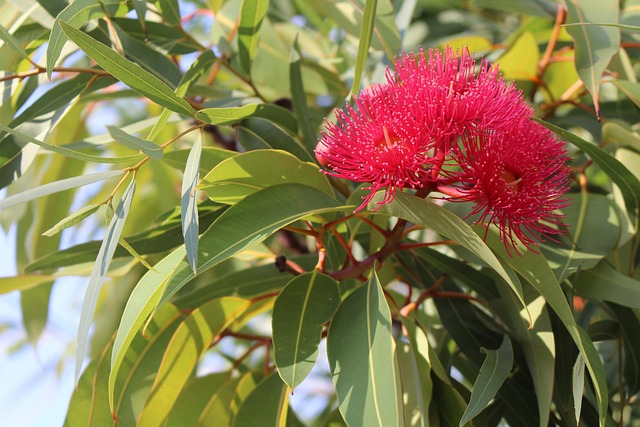Key Takeaways
- Baking soda acts like a superhero for your laundry, neutralizing odors and enhancing detergent power.
- White distilled vinegar is not just a smell-fighter; it doubles as a fabric softener, safe for all fabrics.
- Create your own fabric deodorizers with natural ingredients like necessary oils, herbs, and baking soda for a new twist.
- For a commercial option, try Lysol Disinfectant Laundry Sanitizer or Zero Odor for strong deodorization and sanitization.
Natural Deodorizing Methods for Clothes
Tired of stubborn odors clinging to your clothes, we’ve spoken to the vast majority of professional launderettes in cali to give you the best tips.
Imagine harnessing nature’s power for a fresher wardrobe! Using natural deodorizers offers an eco-friendly and effective solution. Here are some top contenders:
- Baking Soda: This powerhouse absorbs odors like a sponge, leaving your clothes smelling new.
- Vinegar: A household hero, vinegar neutralizes odors and softens fabrics without harmful residues.
- Lemon Juice: With its zesty aroma, lemon juice deodorizes while brightening whites.
- Necessary Oils: Oils like eucalyptus and lavender add a pleasant scent and provide antibacterial benefits.
- Activated Charcoal: This natural odor magnet traps unwanted smells effortlessly.
Incorporating these natural ingredients into your laundry routine not only enhances freshness but also promotes sustainable solutions. Why settle for harsh chemicals when nature’s bounty is at your fingertips?
By choosing these methods, you accept fabric care that is both non-toxic and effective, ensuring your clothes smell delightful while safeguarding your health and the environment.
Using Baking Soda and Vinegar
Using baking soda and vinegar creates a powerful alliance within the sphere of natural deodorizing methods. These household heroes effectively neutralize odors. Think of baking soda as a sponge, soaking up unwanted smells, while vinegar acts like a superhero, breaking down the very substances that cause those odors. Together, they offer an eco-friendly solution for new your laundry.
How does this magic unfold?
Imagine baking soda absorbing the stench, while vinegar swoops in to vanquish the source. This dynamic duo not only revitalizes fabrics but also ensures fabric care without resorting to harsh chemicals, making it a sustainable choice for your laundry routine.
To put this method to work, simply add 1/2 cup of baking soda and 1 cup of vinegar to your laundry load. What’s the result?
Clothes that smell new and clean, all while being non-toxic and safe for the environment!
Necessary Oils and Lemon Juice Solutions
For natural deodorizing of clothes, necessary oils and lemon juice create a powerful partnership, effectively combating stubborn odors. Why settle for harsh chemicals when nature provides strong alternatives?
Imagine your laundry refreshed by the zesty scent of lemon, harmonizing with the calming fragrances of lavender or eucalyptus oil.
Using these natural ingredients is simple:
- Lemon Juice: A natural odor neutralizer because of its acidity.
- Necessary Oils: Infuse fabrics with delightful scents while enhancing fabric care.
Mix a few drops of necessary oils with lemon juice for an eco-friendly solution that not only deodorizes but also leaves your laundry smelling invigorating. Think of it as a rejuvenating spa treatment for your clothes!
Eco-Friendly and Non-Toxic Odor Removal Techniques
Why rely on harsh chemicals for odor removal when eco-friendly and non-toxic solutions are at our fingertips?
Just as a garden thrives on natural elements, so can our laundry!
Consider these top natural deodorizers:
- Baking Soda: This odor-neutralizing powerhouse is a laundry necessary.
- Vinegar: A splash of white vinegar banishes bad smells and softens fabrics.
- Lemon Juice: Its natural acidity cuts through odors, leaving clothes refreshingly clean.
- Necessary Oils: Oils like eucalyptus and lavender add delightful scents and antibacterial benefits.
- Activated Charcoal: This potent absorber captures unwanted smells, making it perfect for laundry.
By using these household remedies, we not only support sustainable solutions but also keep our clothes free from harsh chemicals. Isn’t it interesting how nature provides us with such effective tools for fabric care? Let’s harness these natural ingredients for a fresher, healthier laundry experience!
Activated Charcoal and Air Purifiers
Activated charcoal serves as a powerful odor neutralizer in air purifiers, functioning like a sponge that absorbs unwanted smells. It captures impurities and toxins, ensuring our clothes remain new and free from stale odors. Why settle for synthetic fragrances when we can harness nature’s best?
| Feature | Benefit |
|---|---|
| Natural Ingredient | Non-toxic and eco-friendly |
| Odor Absorption | Effectively eliminates unwanted scents |
Incorporating activated charcoal into your laundry routine revitalizes freshness, offering a sustainable solution for fabric care. Imagine stepping into a room filled with the calming aromas of eucalyptus or lavender, all thanks to this remarkable ingredient!
DIY Fabric Fresheners and Stain Removers
Revamp your laundry routine with DIY fabric fresheners and stain removers made from simple, natural ingredients. Imagine yourself as a knight, wielding a shield against annoying odors! Ingredients like baking soda, vinegar, and necessary oils are your steadfast allies in this battle.
- Baking Soda: This potent odor neutralizer effortlessly absorbs unwanted smells.
- Vinegar: Cuts through stubborn odors and softens fabrics, making it a laundry must-have.
- Lemon Juice: Brightens clothes and adds a new scent, like a burst of sunshine.
- Activated Charcoal: An odor-absorbing powerhouse that conquers even the toughest smells.
- Necessary Oils: Infuse delightful aromas; lavender and eucalyptus are perfect for a calming touch.
Opting for these eco-friendly solutions not only protects your clothes but also nurtures the planet. Why rely on harsh chemicals when nature provides effective and pleasant alternatives?
